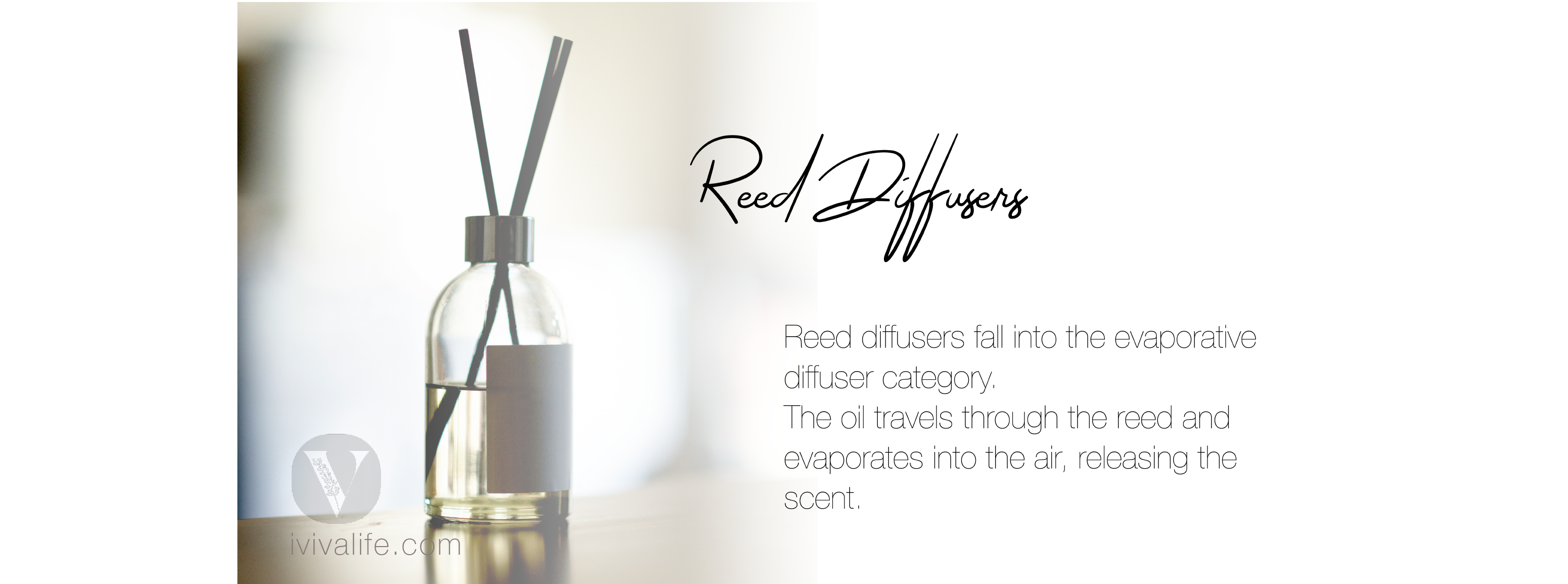The Different Types of Essential Oil Diffusers (And Their Pros and Cons!)
Aug 9th 2024

Essential oils have become a staple in many households for their amazing benefits, from improving mood to purifying the air. One of the best ways to enjoy these benefits is by using an essential oil diffuser. But with so many types available, where do you start?! It canbe so overwhelming to choose the right one for your needs.
In this post, we’ll explore the different types of essential oil diffusers, their pros and cons, and help you decide which one is perfect for you! ?

Essential oil diffusers are a fantastic way to disperse the therapeutic aromas of essential oils into the air, creating a calming and beneficial atmosphere in your home or office. Whether you're looking to relax, boost your energy, or improve air quality, there's a diffuser out there for you. Let's take a closer look at the most common types of diffusers: ultrasonic, nebulizing, evaporative, and heat diffusers. We’ll break down their benefits and drawbacks to help you make an informed decision.
Ultrasonic Diffusers
How They Work: Ultrasonic diffusers use ultrasonic vibrations to create a fine mist of water and essential oil particles, dispersing them into the air.
Pros:
- Preserves Oil Integrity: Since they don’t use heat, the therapeutic properties of the oils are preserved.
- Humidifies the Air: Adds moisture to the air, which can be beneficial in dry climates.
- Quiet Operation: Operates quietly, making them ideal for use in bedrooms or offices.
Cons:
- Requires Water: Needs to be refilled with water regularly.
- Less Potent Aroma: The aroma might be less concentrated compared to nebulizing diffusers.
- Cleaning Maintenance: Requires regular cleaning to prevent mold and mildew buildup.
Nebulizing Diffusers
How They Work: Nebulizing diffusers use pressurized air to create a fine mist of pure essential oil, which is then dispersed into the air.
Pros:
- Potent Aroma: Provides a strong, concentrated aroma without diluting the oils.
- No Water Needed: Uses pure essential oils, so no need to add water.
- Preserves Oil Quality: No heat is used, preserving the therapeutic properties of the oils.
Cons:
- Louder Operation: Can be noisier compared to ultrasonic diffusers.
- Higher Oil Consumption: Uses oils more quickly, which can be more expensive over time.
- Higher Cost: Generally more expensive than other types of diffusers.
Evaporative Diffusers
How They Work: Evaporative diffusers use a fan to blow air through a pad or filter soaked with essential oils, causing the oils to evaporate and disperse into the air.
Pros:
- Simple to Use: Easy to set up and use, with minimal maintenance.
- Portable: Often small and battery-operated, making them portable and convenient.
- Quick Aroma: Provides a quick burst of aroma.
Cons:
- Uneven Dispersion: The therapeutic properties of the oils can be unevenly dispersed, with lighter components diffusing more quickly than heavier ones.
- Less Effective for Large Spaces: Best for smaller areas, as they may not disperse oils effectively in larger spaces.

Reed diffuser pros and cons
Pros: Reed diffusers can be a safer, more sustainable alternative to candles and spray cans because they don't use harmful aerosols or burning products.
Cons: The fragrance can evaporate quickly, especially in high temperatures or low humidity.
Heat Diffusers
How They Work: Heat diffusers use heat to evaporate essential oils, releasing their aroma into the air.
Pros:
- Affordable: Generally more affordable compared to other types of diffusers.
- Quiet Operation: Operates silently, making them suitable for quiet environments.
- Easy to Use: Simple setup and operation.
Cons:
- May Alter Oil Properties: Heat can alter the chemical composition of essential oils, potentially reducing their therapeutic benefits.
- Risk of Overheating: There is a risk of overheating, which can be a safety concern.
- Less Control Over Aroma Intensity: Harder to control the intensity of the aroma.

Choosing the right essential oil diffuser depends on your specific needs and preferences. Ultrasonic diffusers are great for humidifying the air and maintaining a quiet environment, while nebulizing diffusers offer a potent aroma and pure essential oil experience. Evaporative diffusers are convenient and portable, perfect for small spaces, and heat diffusers are budget-friendly but may compromise the therapeutic benefits of the oils.
No matter which type you choose, incorporating a diffuser into your daily routine can enhance your well-being and create a pleasant atmosphere in your space. Ready to start diffusing?
The first step is to choose your essential oils. (You can even use the search bar at the tope of our site to search for the benefits you are looking for!) Then explore the different diffuser options and find the perfect one for your lifestyle. (Don’t worry- you can still use your oils topically while you decide on which diffuser you need!)
 Be sure to follow us on Instagram! We offer tips, inspiration, and information on how to makethe most of your essential oils, and keep you informed about upcoming markets!
Be sure to follow us on Instagram! We offer tips, inspiration, and information on how to makethe most of your essential oils, and keep you informed about upcoming markets!

